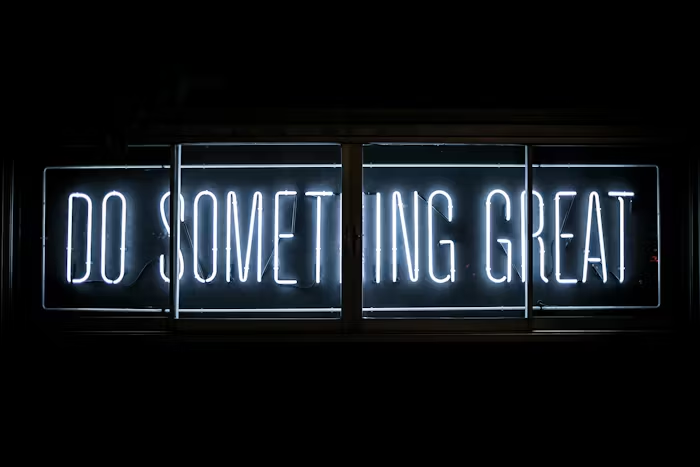In today’s fast-paced world, it’s easy to find yourself overwhelmed with endless commitments and obligations. Whether it’s agreeing to extra tasks at work, social engagements, or personal favors, saying “yes” too often can leave you drained and unproductive. But here’s a secret: one of the most powerful tools for reclaiming your time and boosting productivity is learning to say “no.”
This simple word can transform your focus, energy, and effectiveness. Let’s dive into why saying no is crucial for productivity and how you can harness its power to achieve your goals.
The Productivity Drain of Saying Yes to Everything
Why We Say Yes Too Often
Many people find it difficult to say no because they fear disappointing others, missing opportunities, or being perceived as selfish. While the intentions behind saying yes are often good, the consequences can be counterproductive.
The Cost of Overcommitment
When you take on too much, you dilute your time and energy, leaving little room for high-priority tasks. Overcommitting can lead to:
- Burnout from excessive workload.
- Reduced focus due to constant multitasking.
- Inability to meet deadlines or deliver quality work.

The Power of No: Why It Matters
Saying no isn’t about being unkind or uncooperative — it’s about setting boundaries to protect your time and focus. When you say no to distractions, you say yes to what truly matters.
Benefits of Saying No
- Enhanced Focus: Declining unnecessary commitments allows you to concentrate on tasks that align with your goals.
- Reduced Stress: With fewer obligations, you can work at a manageable pace and avoid overwhelm.
- Improved Decision-Making: By prioritizing your time, you can make better choices about where to direct your energy.
- Better Work-Life Balance: Saying no creates space for personal time and self-care, which are essential for long-term productivity.
How to Say No Without Guilt
For many, the hardest part of saying no is the fear of offending or disappointing others. However, with the right approach, you can decline requests gracefully and maintain positive relationships.
1. Be Polite and Direct
There’s no need to over-explain or justify your decision. A simple, polite response is often enough.
Example
- Instead of: “I can’t because I have too much going on, and I feel really bad about it…”
- Say: “Thank you for thinking of me, but I won’t be able to take this on right now.”
2. Offer Alternatives
If you want to maintain goodwill, suggest another solution or person who might be able to help.
Example
“I can’t help with this project, but I recommend reaching out to [Name], who has expertise in this area.”
3. Practice Saying No in Low-Stakes Situations
Build your confidence by practicing in less stressful scenarios. For instance, politely decline a promotional offer or unnecessary invitation.
4. Use the “Delayed No”
If you’re unsure, buy time by saying, “Let me check my schedule and get back to you.” This allows you to evaluate the request and respond thoughtfully.
When to Say No
Knowing when to say no is just as important as knowing how to say it. Use these guidelines to determine when declining is the right choice.
1. It Conflicts with Your Priorities
If a request doesn’t align with your goals or values, it’s a clear candidate for a no.
Example
If your goal is to complete a major project by a deadline, saying no to a meeting that doesn’t add value to your work is justified.
2. It Overextends Your Capacity
Be honest about your workload. If taking on more means compromising quality or well-being, it’s better to decline.
3. It’s a Distraction
Not every opportunity is worth pursuing. If something feels like a detour from your path, it’s okay to pass.
The Productivity Boost: How Saying No Pays Off
When you say no strategically, you create more time and energy for tasks that truly matter. Here’s how it boosts productivity:
1. Time Management
Saying no to non-essential tasks frees up hours in your day. This allows you to dedicate uninterrupted time to your top priorities.
Pro Tip
Use time-blocking to schedule focused work periods and avoid interruptions.
2. Quality Over Quantity
By reducing your workload, you can devote more attention to each task, leading to higher-quality outcomes.
Example
Instead of juggling multiple projects with mediocre results, focus on completing one with excellence.
3. Energy Conservation
Every commitment you take on drains mental or physical energy. Protecting your energy by saying no keeps you refreshed and ready for meaningful work.
Overcoming the Fear of Saying No
1. Remember Your Goals
Keep your long-term objectives in mind. Every time you say yes to something, you’re saying no to something else.
Example
Saying no to an optional meeting could mean saying yes to an hour of focused work or personal downtime.
2. Understand Your Worth
Your time and skills are valuable. Recognize that it’s okay to set boundaries to protect them.
3. Accept That You Can’t Please Everyone
No matter how accommodating you are, you can’t satisfy everyone. Focus on what’s best for you and your priorities.
Practical Tools to Help You Say No
1. Use a Decision-Making Framework
Before agreeing to a request, ask yourself:
- Does this align with my goals?
- Do I have the capacity to take this on?
- What will I have to sacrifice to say yes?
2. Schedule a “No Day”
Dedicate one day a week to saying no to new commitments. Use this time to focus solely on existing priorities.
3. Leverage Technology
Automate or delegate tasks to minimize distractions and reduce the need for manual declines.
Example
Set up email filters to manage incoming requests more efficiently.
Success Stories: How Saying No Transformed Productivity
Case Study 1: The Busy Professional
A marketing manager struggling with burnout began declining non-essential meetings and delegating smaller tasks. Within a month, her productivity soared, and she delivered a successful campaign ahead of schedule.
Case Study 2: The Freelancer
A freelance writer overwhelmed by low-paying gigs started saying no to poorly paid projects. This freed up time to secure higher-value clients and double her income.
Saying no isn’t a sign of weakness or selfishness — it’s a powerful act of self-respect and prioritization. By setting boundaries and protecting your time, you can focus on what truly matters, achieve your goals, and lead a more balanced, productive life.
Start small by saying no to one unnecessary commitment today. Over time, you’ll find that this simple word unlocks a world of possibilities for growth, success, and fulfillment.







